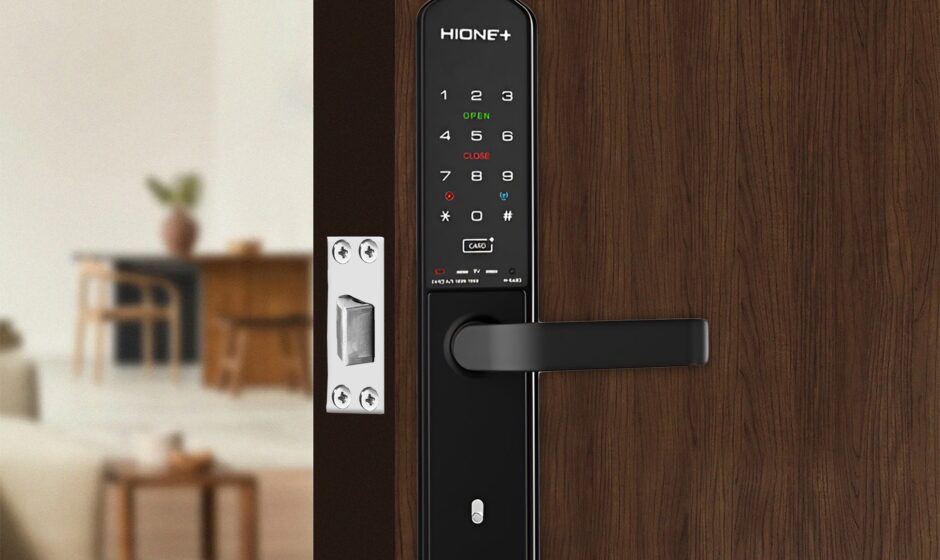A door lock is more than just a mechanical device—it’s your home’s first line of defense. In a world where security is increasingly important, understanding the types of locks available and how they protect your property is essential. This article explores the world of door locks, their types, mechanisms, latest innovations, and how to choose the right one for your needs.
The Importance of Door Locks in Everyday Life
Door locks are one of the oldest forms of security. From ancient wooden bolts to modern smart locking systems, these devices have evolved significantly, but their primary purpose remains the same: to protect against unauthorized access. Whether for residential, commercial, or industrial use, the effectiveness of a lock can determine how secure a space truly is.
Most burglaries happen due to weak or outdated locking systems. A good quality lock not only prevents break-ins but also offers peace of mind. Choosing the right lock can also impact insurance premiums and add to a property’s value.
Types of Door Locks
Understanding the different types of door locks is crucial before making a purchase. Each type has its advantages and applications.
Deadbolt Locks
Deadbolt locks are a popular choice for external doors. They offer a high level of security due to their solid metal bolt that extends deep into the door frame. There are three main types of deadbolts:
- Single Cylinder: Operated with a key on the outside and a thumb turn on the inside.
- Double Cylinder: Requires a key on both sides, offering extra security but can be a safety risk in emergencies.
- Keyless Deadbolts: These come with a keypad or touchscreen for entry, removing the need for keys altogether.
Knob Locks
Knob locks are common in interior doors and sometimes in combination with deadbolts on exterior doors. However, they are not recommended for front doors alone because the lock cylinder is inside the knob, which can be easily broken.
Lever Handle Locks
Ideal for interior doors, especially in commercial buildings, lever handle locks are easier to operate and offer ergonomic benefits. However, they are not as secure as deadbolts.
Mortise Locks
Mortise locks are durable and often used in commercial properties. They are fitted into a pocket within the door, making them harder to tamper with. These locks are known for their strength and longevity.
Smart Locks
Smart locks are the future of home and business security. They offer keyless access using Wi-Fi, Bluetooth, or biometric authentication. Many smart locks integrate with home automation systems and can be controlled remotely via smartphone apps.
Factors to Consider When Choosing a Door Lock
Choosing the right lock requires more than picking the most expensive one. Here are some important factors to keep in mind:
Security Grade
Locks are often rated by security standards such as ANSI/BHMA. Grade 1 offers the highest level of residential security, while Grade 3 provides basic protection. Look for certified locks with a Grade 1 or 2 rating for main entrances.
Material and Durability
Locks made of brass, steel, or zinc alloy tend to offer better resistance to physical attacks. Weather-resistant models are also crucial for exterior use to avoid rust and deterioration.
Ease of Installation
Some locks are DIY-friendly, while others may require professional installation. Smart locks or mortise locks often require precise fitting and alignment, which may not be suitable for all doors.
Aesthetics and Compatibility
A lock should complement the door’s style and be compatible with its thickness and design. With modern design options, you don’t have to sacrifice looks for security.
Smart Door Locks: A Growing Trend
As technology advances, smart door locks are gaining popularity. These locks offer features like:
- Remote Access: Lock or unlock doors from anywhere via smartphone.
- Temporary Access Codes: Share access with family, guests, or service providers without handing over a physical key.
- Activity Logs: Monitor who enters and exits your home.
- Voice Control: Many smart locks integrate with Alexa, Google Assistant, or Siri.
Despite their convenience, smart locks are not foolproof. They depend on power sources (batteries or electricity) and can be vulnerable to hacking. However, top-tier models incorporate strong encryption and multi-factor authentication for better security.
Common Door Lock Problems and Maintenance
Like any mechanical device, door locks require maintenance and can face issues. Here are a few common problems:
- Key Jamming: Often caused by dirt or rust inside the cylinder.
- Misalignment: Happens when the strike plate and bolt don’t line up correctly.
- Loose Parts: Over time, screws and internal parts can loosen, affecting functionality.
- Dead Battery in Smart Locks: A common issue with smart locks; many come with emergency key access or USB charging ports.
Maintenance Tips:
- Lubricate the lock mechanism every six months.
- Tighten loose screws and check alignment regularly.
- Replace batteries in smart locks proactively.
- Keep a backup key in a secure location.
Professional Installation vs. DIY
While installing a basic deadbolt may be simple, high-security or smart systems are best left to professionals. Improper installation can weaken the lock’s effectiveness. Certified locksmiths also ensure that your door is reinforced properly and that no vulnerabilities are left behind.
Final Thoughts
A door lock is not just a piece of hardware—it’s a critical part of your security system. Whether you’re moving into a new home, upgrading office security, or exploring smart home solutions, investing in a high-quality lock is always worth it.
From traditional deadbolts to cutting-edge smart locks, the market offers something for every level of security and convenience. The key is to balance functionality, safety, and aesthetics while ensuring professional installation and routine maintenance.



